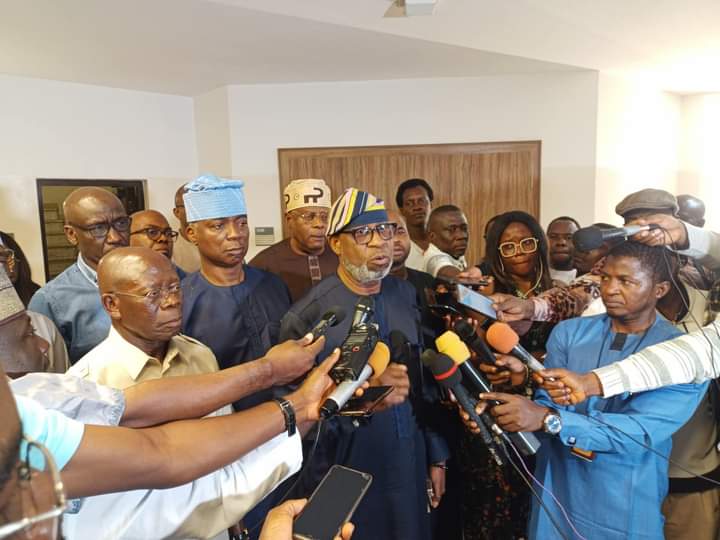The Federal Government of Nigeria is getting closer to reaching a deal with the Trade Union Congress to avert an industrial action due to the removal of subsidy on petrol.
President Bola Ahmed Tinubu-led government noted that it would consider a list of demands by the Trade Union Congress (TUC), including a minimum wage increase and tax holiday after a meeting with the representatives of the Union.
The meeting between the Federal Government and the TUC, late Sunday, was a follow-up to the engagements between the two after the President declared during his inauguration speech that ‘fuel subsidy is gone’.
Following the speech, marketers raised the price of fuel across the country and Labour announced a nationwide strike to begin from Wednesday to demand for immediate reversal.
The meeting was however boycotted by Nigeria Labour Congress (NLC) as the body insisted that the FG reverses the price of fuel to its previous rate.
Joe Ajaero, the president of the NLC emphasised that the Federal Government should adhere to the Appropriation Act of 2023, which makes provision for subsidy till the end of June.
President of Trade Union Congress of Nigeria (TUC), Festus Osifo, also insisted on the reversal despite the talks with the Federal Government officials.
The government team was led by Secretary to the Government of the Federation (SGF) Senator George Akume.
While briefing newsmen, the spokesman for the government team, Dele Alake, said negotiations would continue on Monday while stressing that Labour’s demands are “not impracticable”.
Alake said: “We are very happy to announce that this engagement has been very productive.
“The TUC presented a list of demands, which will be presented to Mr President for consideration.
“A lot of the items on the list are not impracticable. What we need to do is to study the numbers very well.
“We have asked the TUC to also give us a leeway to consult very exhaustively and reconvene on Tuesday (tomorrow) to look at the numbers’ viability and practicability of all the items.
“The most important is the issue of the minimum wage, which the Labour movement has demanded given the consequential impact of this removal of subsidy.
“The government will look at that and Mr President is most likely going to constitute a tripartite committee of the Federal Government, states and the organised Labour as well as the private sector.
“The committee will study all the dynamics of a wage increase in percentages, the numbers and the categories that will be affected.
“So, by Tuesday, when we reconvene to meet with the TUC again, we should have very concrete items to present to the world.
“But, the most important thing for today is that we are making appreciable progress with the Labour.”
Alake confirmed that the cost of living has gone up due to the removal of subsidy on petrol.
“Labour argues that there is an immediate impact on the workers, on the purchasing power, because the price of fuel has gone up.
“That will necessarily reduce the purchasing power of the average worker. So, the next thing of immediate consequence is to increase the purchasing power of the worker.
“That to me and all of us on this side is the topmost priority on the list.
“There are other things like the tax holidays in which some categories of workers will be beneficiaries. But the most important is the minimum wage,” Alake said.
On the NLC, he said: “We all agreed that we are going to meet here, but again, in this game there are dynamics.
“Sometimes, they could be meeting with their executives and not able to meet with us, or they could want to postpone or they have not articulated their list of demands as the TUC.
“But we cannot second-guess why they are not here. But efforts are being made to reach them; we are not isolating them at all.”

